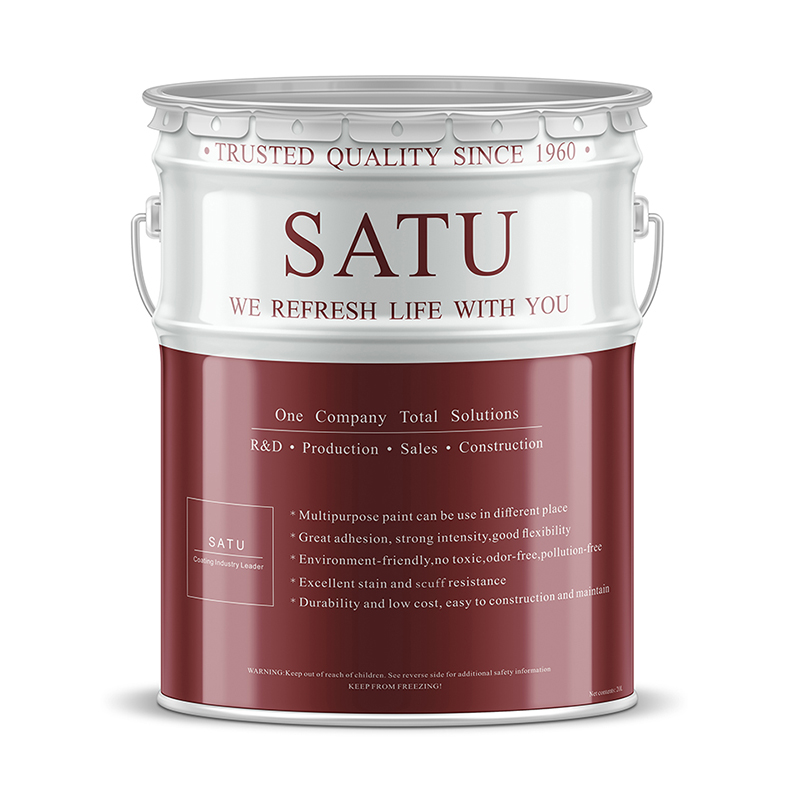So, you're standing in your garage, scanning over the not-so-appealing concrete floor, typically marked by time, usage, scratches, and oil stains. You can't help but wonder, "Is painting my garage floor a good idea?"
Let's cut through the fluff, lay down the drop cloth, and crack open the truth on upgrading your garage floor. The endeavor has bragging rights for affordability and added brightness, complemented by diverse paint types and color options. However, the glam of your garage remodel may be only skin-deep as slip hazards, chipping, and hot-car tire marks start unearthing its fragility. Obviously, this is a project that comes with a unique set of pros and cons. House Wall Paint

Think of painting garage flooring as a choreographed dance, each step requiring precision. Color selection is a bold decision here, where you embrace your inner artist to select a hue that aligns with your garage's interior. You'll also want to ensure ample ventilation, preventing fume buildups from crashing your painting party. Unleashing your inner DIY master is thrilling, but not without heeding the manufacturer's guidelines for the products you deploy. But remember, not every day is painting day. So, watch out for weather woes (cue humidity and temperature) that could turn your paint job into a sticky situation. You must also allow enough drying time between paint coats. With that in mind, let's shift gears to weighing the benefits of garage floor painting.
Starting with your pockets, painting your garage floor can be a cost-efficient option. Unlike concrete sealers and stains that demand higher investment, painting-garage-floor cost fits snugly within a lower budget. You're looking at an average of $0.78 per square foot for the materials.
Moving past the dollars, fresh concrete paint can render your garage character and charm. From greys to vibrant hues, there is a shade for anyone's style. Not to mention, there's an array of garage flooring paint types to choose from, including epoxy, oil-based, and polyurethane paints. Plus, epoxy-seal garage floor paints are like a fine-tuned version of Photoshop, artfully turning minor flaws invisible.
Another pro of painting garage flooring is increased brightness. With bare concrete floors gulping up that precious light, your otherwise vibrant garage can resemble a bat cave. A well-chosen reflective shade suffices to turn that dull, dreary ambiance into a blissful haven with newfound brightness. So, there is no need to splurge on extra illumination. Lastly, cleanliness finds a new ally in a painted garage floor. In its diminishing health, bare concrete creates fine dust particles that attach themselves to everything, thus dulling your garage's shine. Plus, spills and messes would now sit on top of the paint rather than soak into or stick to the floor, making garage cleaning a breeze.
First up in the cons column is the tendency to peel or chip. Factors like paint quality, poor surface preparation, and the ever-unpredictable environmental conditions can leave your concrete floor looking less than stellar. Plus, there's the conflict between your garage floor and the family car. Heavy vehicles or hot tires may swoop in and cause damage to the beautiful once-painted concrete, making your garage remodel project a bit less resilient.
Then, there's the time commitment. You may be surprised that painting concrete flooring can take much more time than expected. Whether using a two-part epoxy coating or a simple paint, the preparation and drying time between layers can turn it into a multi-day affair. There's also a good chance your garage remodel project would demand extensive groundwork like filling in cracks, grinding the surface, and addressing moisture issues.

Epoxy Wall Paint If you consider painting your garage floor a foolproof financial win, think again. The modest initial expenditure can snowball into a financial black hole. Why? Frequent use of the garage induces rapid aging into the paint job, causing chipping, peeling, and scuffing, eventually setting you up for unplanned touch-up expenses. Finally, painted concrete surfaces have a penchant for becoming slip hazards when wet. Investing extra in anti-slip additives or slip-resistant concrete floor paint is crucial to avoid fiascos.